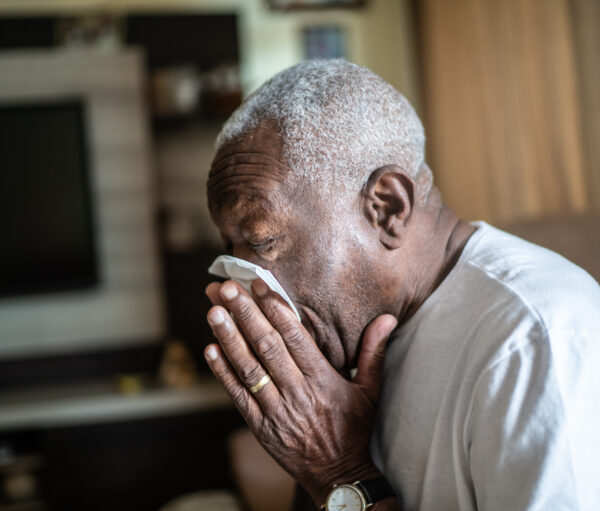Understanding Seasonal Allergies

Spring can be an invigorating season, with its refreshing bloom of new life after a long winter. But this blooming often comes with an annoying side effect: seasonal allergies. Seasonal allergies, sometimes referred to as hay fever, are triggered by pollen from trees, grasses, and weeds. In Illinois, April is a prime time for these allergens. Symptoms can include sneezing, itchy eyes, congestion, and in some cases, exacerbation of existing respiratory conditions.
For older adults in particular, allergies can be more than just a nuisance. The Centers for Disease Control reports that 60 million people suffer from seasonal allergies, with older adults representing a large number of those. Because older adults often have weakened immune systems, they can suffer more from the effects of seasonal allergies. These can interfere with sleep, worsen chronic conditions such as asthma or COPD, and impact overall quality of life. There are strategies to deal with this seasonal bother.
Dealing with seasonal allergies
Stay informed about pollen counts: Local weather channels or websites often provide daily pollen counts. On days when counts are high, consider spending more time indoors, especially during peak pollen release times, typically early morning.
Keep indoor air clean: Use air purifiers with HEPA filters to capture indoor allergens. Ensure windows are closed on high pollen days to keep allergens out. Regularly changing air filters in your home’s heating and cooling systems can also help.
Take medication: Over-the-counter antihistamines can be effective for many older adults. However, it’s important to consult with a healthcare provider before starting any new medication, as some antihistamines can interact with prescriptions commonly taken by older adults or exacerbate health conditions.
Practice safe nasal irrigation: Using a saline solution to flush allergens from the nasal passages can provide relief. Kits for nasal irrigation are widely available and can be a drug-free way to manage symptoms. An important caveat, though: The water used in nasal irrigation must be sterile to prevent infection by a rare-but-often-fatal brain infection. Use distilled water for nasal irrigation, or boil tap water for at least three minutes, let it cool to room temperature, keep covered, and use within 24 hours.
Consult an allergist: If over-the-counter remedies aren’t effective, consider seeing an allergist. They can offer personalized advice and treatments, including prescription medications and immunotherapy.
Lifestyle adjustments
In addition to the strategies above, simple lifestyle adjustments can make a big difference:
Wear sunglasses and hats outdoors: This can help keep pollen out of your eyes and off your head or hair.
Shower before bed: A shower before bed can remove pollen from your skin and hair, preventing it from transferring to your bedding and disrupting your rest.
Stay hydrated: Drinking plenty of fluids can help thin mucus, making it easier to expel.
Wear a mask: We are no strangers to the disease-prevention potential of medical face masks. They can help with allergies as well. On high pollen days, wearing a KN95 mask outdoors can reduce the amount of pollen you inhale.
Seasonal allergies don’t need to dampen the spirits of older adults as they enjoy the vibrance of spring. By staying informed, making simple adjustments, and seeking appropriate medical advice, older adults can safely manage their allergies.
This article is not intended to replace the advice of your healthcare provider.


